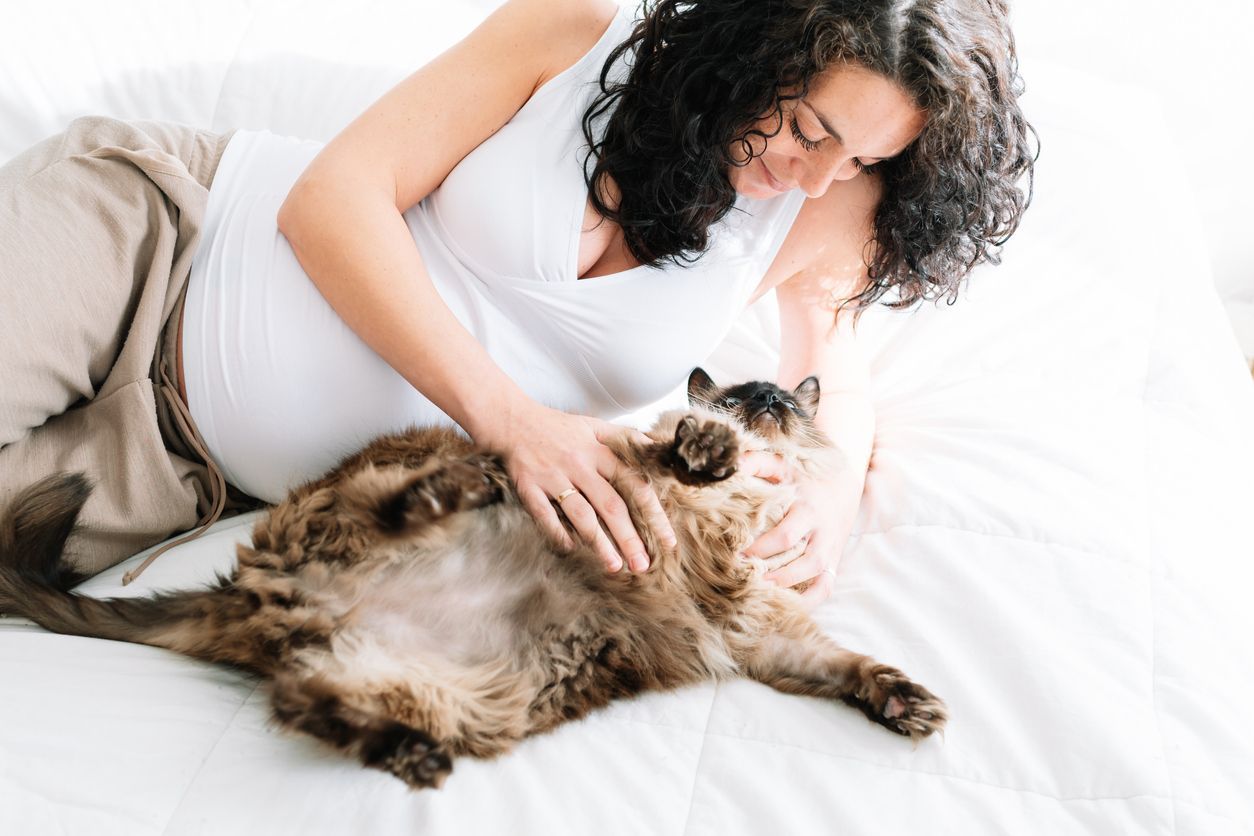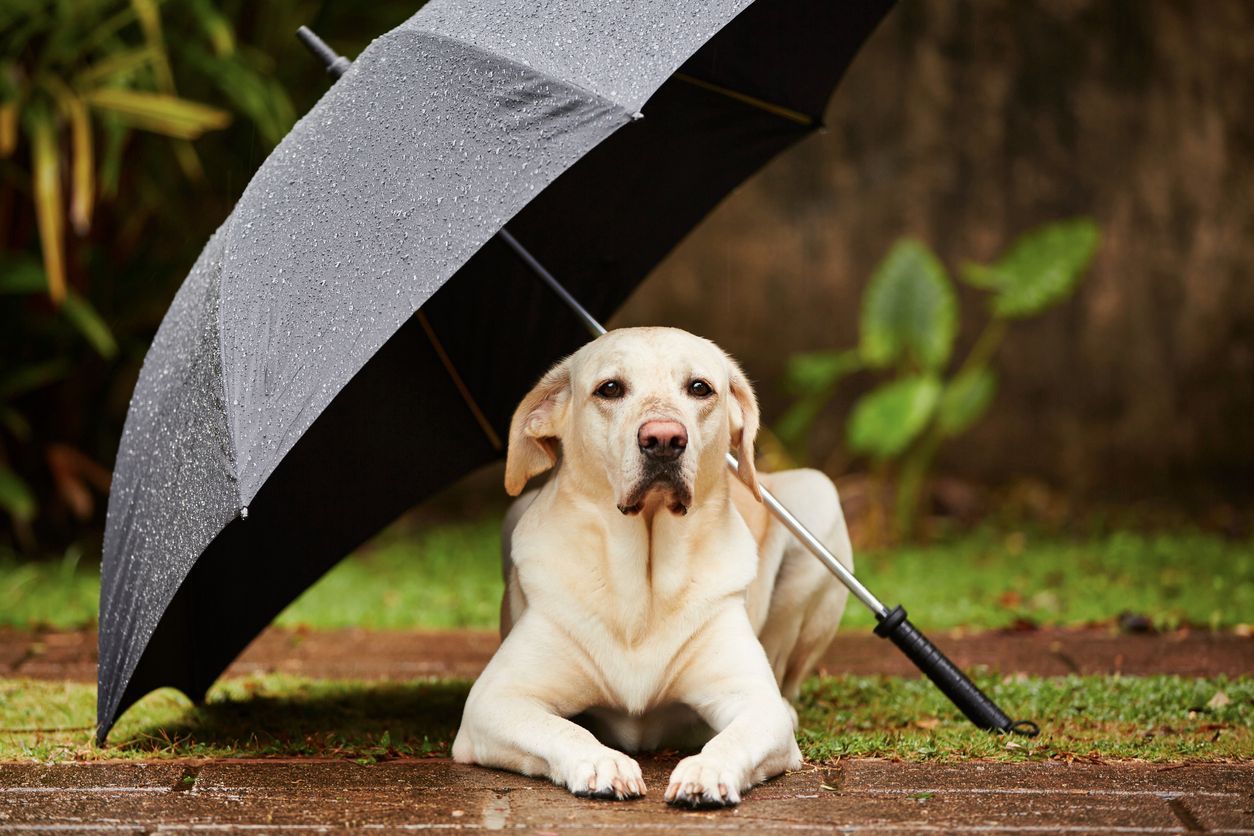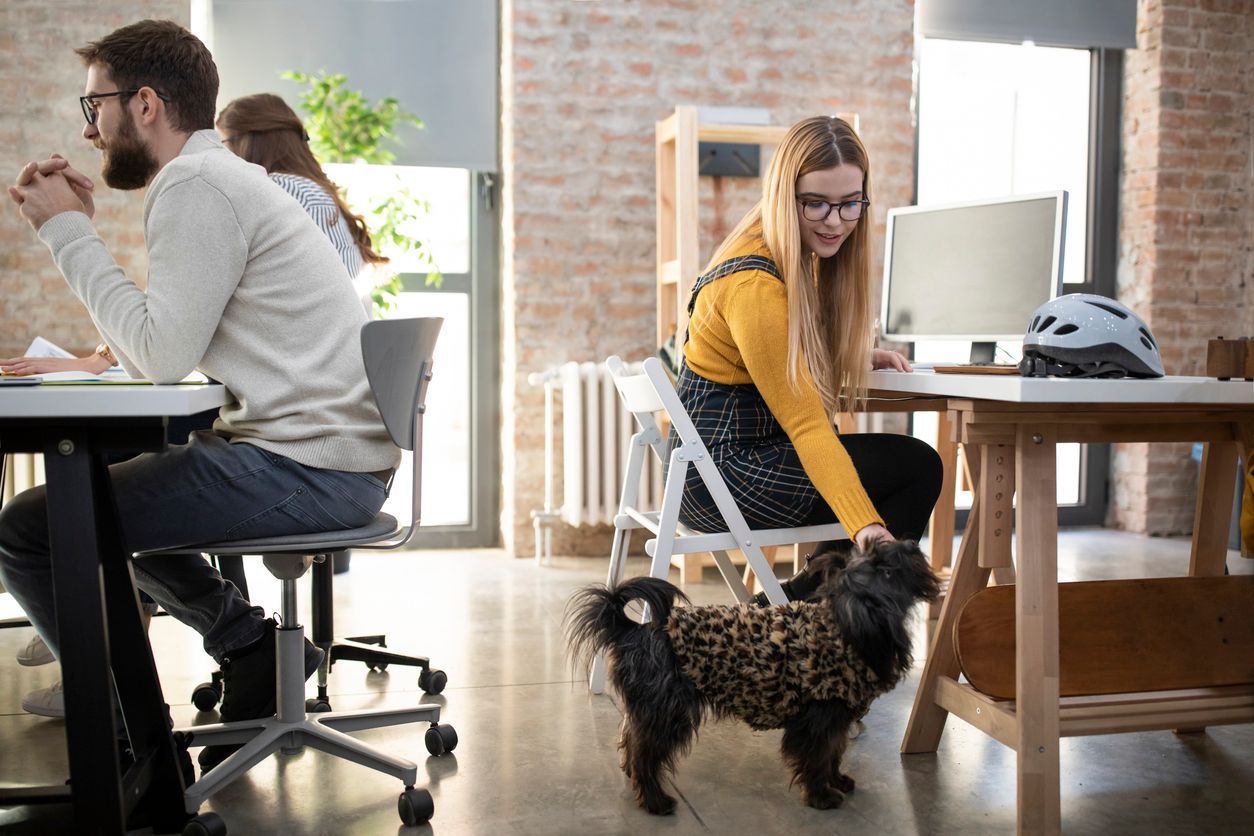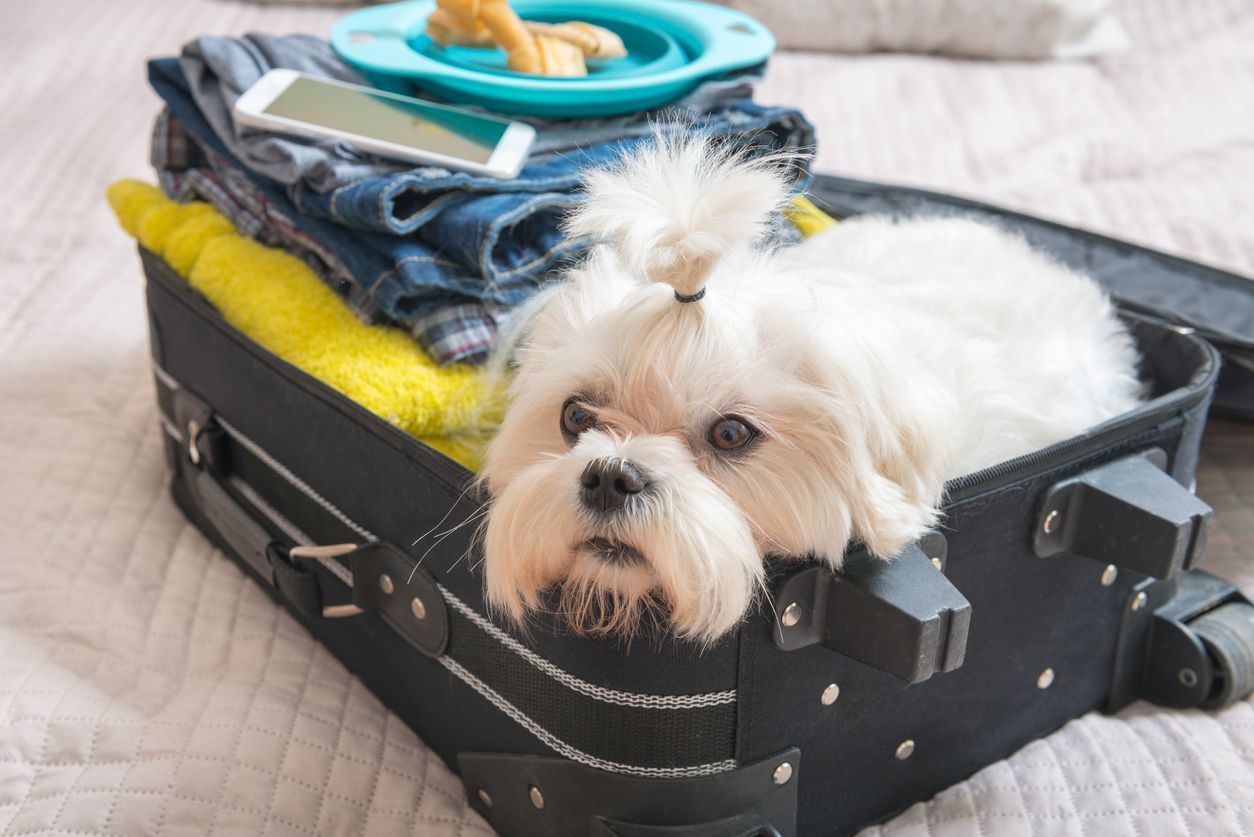A new baby’s on the way! But what about your pets?

Pregnancy can be a scary time. The joy is often coupled with anxiety about keeping your baby safe, whether that’s before you give birth or after. Add pets into the mix, and it can be even more confusing. Some physicians and well-meaning loved ones will happily tell you that pets are dangerous for pregnant women and babies. But the truth of it is, that’s just not true.
“It is generally very safe for expecting mothers to be around pets,” says Vetster vet Dr. Renee Fleming. “While we often hear that pregnant women are immunocompromised, it is more accurate to consider that their immune system may process and respond a bit differently than a non-pregnant individual. A good rule of thumb (for anyone) is to practice good hand hygiene, which we have all been reminded to do over the Covid-19 pandemic.”
Dr. Fleming also says it’s important to get your pets up to date on their vaccines and on flea and tick prevention. That way there’s not really any concern that something will hop from your pet to you. You should also be careful around dogs you don’t know that could jump up on you, and if your pet pulls on a leash, consider having someone else walk them. “Or, take the time now to teach them better habits!” Fleming says.
Dr. Fleming also notes that handling reptiles while pregnant is fine, too — no need to be worried about salmonella as long as you regularly wash your hands.
Cat concerns
If you’re expecting, you’ve likely heard a litany of warnings about staying away from cats, including — and sometimes especially — not changing their litter box. The perceived risk comes from a disease called toxoplasmosis, which is caused by a parasite called Toxoplasma gondii. It’s found in cats and can affect humans, posing a potential risk to unborn children.
Well fear not, cat ladies of the world! According to Dr. Fleming, you really don’t have to worry about it at all.
“In truth, your risk of exposure is higher if you eat or handle raw or undercooked meat, or even by gardening without gloves,” she says. “Scooping litter daily is of little risk to a pregnant mother. Despite having worked with large cats (tigers and lions), African wildlife, and many zoo animals, I myself have never been exposed, and I continued to take care of the litter box duties during both my pregnancies.” Staying on top of your daily litter box habits is not only safe for you during pregnancy, it's imperative. Fresh cat waste cannot spread toxoplasmosis, so the quicker you clean it up, the safer it is.
Truth vs myth
While it’s true that acquiring toxoplasmosis during pregnancy can harm your fetus, this only occurs if you’re infected for the very first time while you’re pregnant. If you’ve been exposed prior to your pregnancy, getting exposed again during it will not cause injury to your growing baby. This means getting tested during your pregnancy isn’t all that useful. If you’re worried about potential exposure to toxoplasmosis, it’s better to be tested prior to becoming pregnant so you know your status going into it. If you’re already positive, no big deal. But, if you’re negative prior to becoming pregnant, you’ll want to be extra vigilant about hand washing and good hygiene throughout your pregnancy (which is a good idea for other reasons anyway). If there's been a risky exposure during your pregnancy, you can be tested again to see if there could be an issue.
Bringing a baby into a pet-only household
If your household has pets but no kids, you’ll need to get your furry friends ready to welcome a baby. Once you learn you're pregnant, start bringing your pets around children — but cautiously.
“I would not start by taking your pet to the local park” Dr. Fleming says. “Kids running and screaming in play would be overwhelming.”
Try with your friends’ and family’s children first, and keep all the interactions positive with calm behavior, treats, and rewards. The more interaction your pet has with children, the more confident they’ll feel when you bring your baby home.
You’ll also need to make some decisions about the nursery, Dr. Fleming advises. Will your pets be allowed in, or not? If not, make sure you’re setting up boundaries well in advance to get your pet used to them.
Adjusting to life with pets and a child
Ideally, by the time your baby comes home, you should have a routine in place with your pets. Don’t change it. Keep them crated during the day if that’s what they’re used to, whether you’re home on leave or not. Enlist friends and family to help care for your pet while you adjust to having a baby around. As your child grows, it’s important to supervise them with your pets.
“It is very difficult for toddlers and children to learn appropriate pet-handling behavior, and a well meaning tug on the tail could result in scratches or a bite” Fleming says.
And remember — baby gates are a great invention. If you need to keep your children and your pets separate, invest in a few.
If you have concerns about your pet and your pregnancy, your doctor and a Vetster veterinarian can put your mind at ease! From training to pest prevention, we can help you feel confident welcoming your baby home with your pets.










